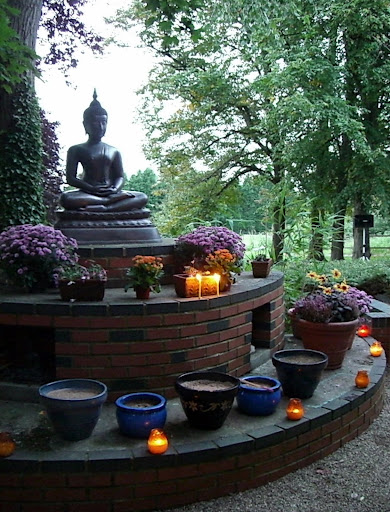
Some of you may have noticed the crop of stories on our RSS Channel feed (now part of our
News page) about Ajahn Brahmavamso being “expelled” from the Wat Pa Phong Sangha. I’ve been looking into the story and it’s very easy to get confused over the issues involved, so here is an attempt to both simplify and cut to the chase on what it’s all about.
The facts are that on Thursday 22nd October 2009, Sisters Vayama, Nirodha, Seri and Hassapañña were ordained as Theravada Bhikkhunis, or nuns, in a dual ordination ceremony held at Bodhinyana Buddhist Monastery in Perth, Western Australia. Ayya Tathaaloka, from the United States, was the Preceptor. Ajahn Brahm and Ajahn Sujato performed the certifying acariya chanting in the bhikkhu's (monks) part of the ceremony.

Ajahn Brahm’s “parent” monastery is Wat Pa Phong which is in Thailand. Now here comes the rub, the Buddhist hierarchy in Thailand don’t approve of female ordination. Women are relegated to the role of Mae Ji, a position somewhere between that of an ordinary lay follower and an ordained monk, It being illegal for women to take ordination in Thailand. They are expected to work essentially as maids to ordained monks, rather than receiving training and the opportunity to practice. There is a lot of talk about Ajahn Brahm’s actions being condemned, not because people are anti bhikkhuni ordination, but because he didn’t follow the rules of the “club”, the Sangha to which he belongs, see Ajahn Chandako’s
open letter to the Buddhist Society of Western Australia. As the Sangha of Wat Nong Pah Pong and its branches in Thailand and abroad had made a decision against ordaining Bhikkhunis, which was restated many times it’s hard to see how “showing respect” and informing Wat Pa Phong beforehand would have resulted in any decision other than refusal to allow the ordinations, so in what way are those who are “not anti bhikkhuni ordination” pro ordination?
There are plenty of ordained Buddhist nuns in the world mainly, but not exclusively, from the Mahayana traditions. There is even a Thai Theravada ordained nun, Bhikkhuni Dhammananda! However she had to go to Sri Lanka for the ceremony.
This is a complex issue but at the end of the first decade of the 21st century it is surely time that all Buddhists recognised Women’s rights to the same spiritual opportunities as men. As the Buddha stated in the Samyutta Nikaya; I.5.6,
" 'Straight' is the name that Road is called, and 'Free From Fear' the Quarter whither thou art bound. Thy Chariot is the 'Silent Runner' named, With Wheels of Righteous Effort fitted well. Conscience the Leaning-board; the Drapery Is Heedfulness; the Driver is the Dharma, I say, and Right Views, they that run before. And
be it woman, or be it man for whom Such a chariot doth wait, by that same car into Nirvana's presence shall they come." (
sorry for the slightly archaic translation, best I could find)
Read more on.....
Why Ajahn Brahmavamso was excluded from the Wat Pa Phong Sangha
Open Letter To All From Ajahn Brahm On His Exclusion by Wat Pah Pong
Women In Theravada Buddhism




































